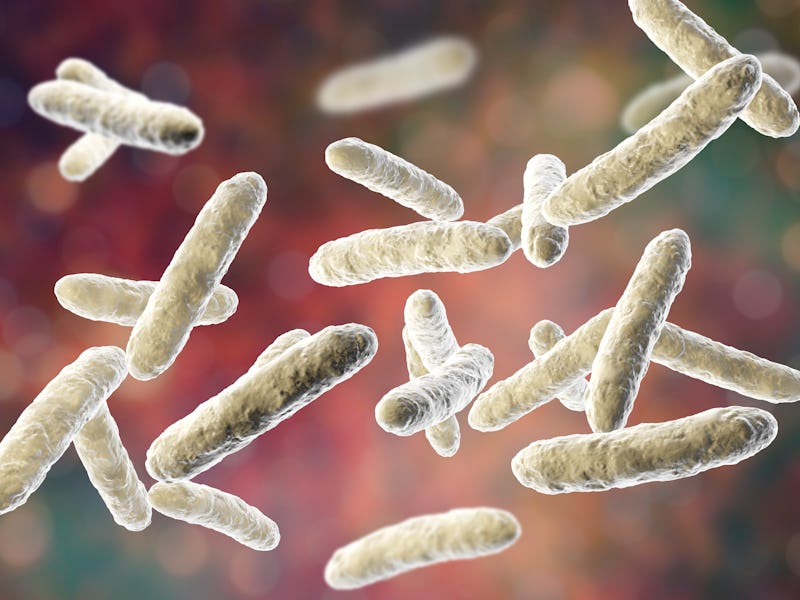Scientists link 2 gut microbes to hormone-fueled cancer
Treatment-resistant cancer may be driven — at least in part — by the makeup of the gut microbiome.

Cancer sucks. Cancer treatments don’t make you feel great, either. Your hair can fall out, your sex drive can disappear, and your stomach can fail to keep anything down.
To make matters worse, cancer treatments don’t always work — for some men with late-stage prostate cancer, that can be particularly true. There is no crystal ball to tell doctors if one treatment will work better than another, either, but there might actually be no need for divination whatsoever — the answer may lie in our gut.
In a study published in the journal Science in October, scientists found that specific bacterial species in our gut may influence how successful androgen deprivation therapy — a kind of hormone replacement treatment — is in treating prostate cancer. These gut bacteria, it seems, generate the same hormones ADT tries to suppress.
Inverse is counting down the ten most-surprising discoveries about your wondrous gut in 2021. This is #10. Read the original story here.
Certain treatment-resistant prostate cancers may be fueled by metabolites in the gut microbiome.
The discovery — In the study, patients with castration-resistant prostate cancer had minimal success with ADT when two bacteria species — Ruminococcus gnavus and Bacteroides acidifaciens — were present in their gut microbiome. (Castration-resistant cancer is exactly what it sounds like.)
Both of these kinds of bacteria stimulate the secretion of androgen hormones — the very fuel the cancer needs to proliferate and survive. The overflow of androgen hormones essentially cancels out the effect of ADT in suppressing prostate cancer.
This discovery also hints at a treatment — in mice models lacking a proper immune system (to mimic immunocompromised patients), the researchers found that applying an antibiotic to kill gut bacteria helped make ADT more effective in treating prostate cancer.
Here’s the background — Testosterone and other male sex hormones fall under a class of hormones called androgens because of their essential role in maintaining the normal development of the prostate.
But when prostate cancer is present, androgens can’t tell the difference between typical and cancerous prostate cells. The hormones bind to the cells’ androgen receptors and the interaction then triggers further cell growth and division.
Androgen deprivation therapy works by decreasing the production of androgen hormones in the testicles. It’s a typical hormone therapy, with one study reporting a 90.6 percent prostate cancer survival rate in less aggressive tumors. But the same research also found that the 15-year survival for aggressive prostate cancer following ADT treatment is between 8.6 and 9.2 percent.
“This cancer treatment works better when the androgens are blocked as completely as possible, but in some cases, some androgens are still present in the prostate, and the patients’ disease worsens faster,” Giorgio Trinchieri, chief of the National Cancer Institute’s Laboratory of Integrative Cancer Immunology, told Inverse at the time.
But the new research shows how treatment resistance may be driven — at least in part — by the makeup of the gut microbiome.
Why it matters — There is no cure for prostate cancer. But it is treatable.
The study provides a microbial blueprint on your prostate cancer outcome. Maintaining a diverse and healthy gut microbiome through diet, exercise, and stress management is key in maximizing your treatment success rate.
On the clinical side, having a better understanding of gut bacteria’s role in prostate cancer will help in preventing microbes from hijacking future treatments. And in turn, targeting these bacteria could be useful in developing new treatments to cure prostate cancer.
This article was originally published on